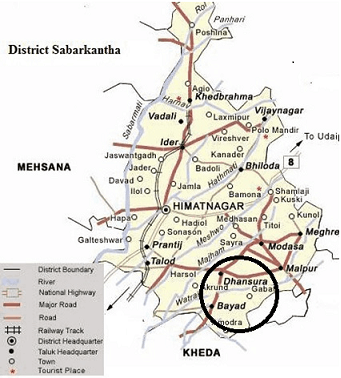/topics/governance
Governance
Conserving Palk Bay
Posted on 28 Nov, 2017 04:04 PMThe Palk Bay is a 15,000 sq km biodiversity conglomeration nestled between the island nation of Sri Lanka and South East Peninsula India with a coastal length of 250 km on the Indian side.

CRZ clears inland waterway terminal at Haldia
Posted on 28 Nov, 2017 01:55 PMGreen nod to Inland waterway terminal at Haldia

Toilet use in Uttarakhand: A mountainous issue
Posted on 23 Nov, 2017 02:36 PM“Sometimes I go for open defecation, sometimes I use the toilet. It’s not like I always have to use the toilet. When I go for work here and there, I defecate in the jungle,” says Renu from one of the remote villages in Tehri Garwal district of Uttarakhand when asked why she does not use latrines every day.

Innovative government-NGO partnerships for development
Posted on 22 Nov, 2017 08:49 AMSari-clad women handling tools with alacrity while fixing water hand pumps is a common sight in the Sabarkantha district in north Gujarat.


Where there are no sewers: The toilet cleaners of Lucknow
Posted on 20 Nov, 2017 03:41 PMNovember 19th is World Toilet Day. Enormous progress has been made in the global effort to provide safe and affordable toilets for the world's poorest citizens since World Toilet Day was first declared in 2001.

Maharashtra to pay Rs 100 crore for river restoration
Posted on 20 Nov, 2017 01:54 PMSC orders Maharashtra government to pay Rs 100 crore for restoration of Ulhas and Waldhuni rivers

Solar mamas to light up their homes
Posted on 20 Nov, 2017 11:19 AMIn her mid-30s, Lino Lameko works as an assistant at the office of the national women’s council in Funafuti, the capital of Tuvalu. She has come all the way from the Polynesian island nation located in the Pacific Ocean to Tilonia, a small village located in Ajmer in Rajasthan to become a “barefoot solar engineer”.

Groundwater training programme by ACWADAM
Posted on 16 Nov, 2017 10:48 PMACWADAM has begun running a fifteen-day training programme on basic hydrogeology or groundwater science, for professionals from Civil Society Organisations or NGOs.
Waiting for water
Posted on 15 Nov, 2017 05:50 AMIn the early hours, the villagers of Khalabari, a tribal-dominated village in the Dumuripadar gram panchayat of Koraput district in Odisha step out of their houses for bringing wood and drinking water. The road to the forest where the water is available is rocky.

NRDWP to get restructured
Posted on 14 Nov, 2017 01:17 PMRestructuring of National Rural Drinking Water Programme approved






